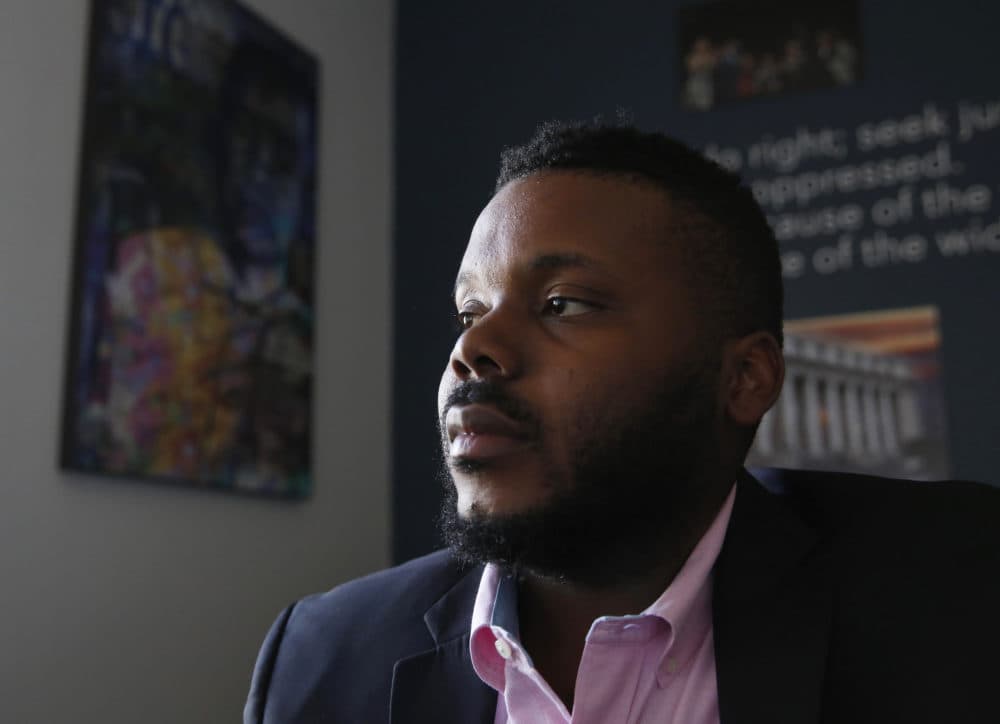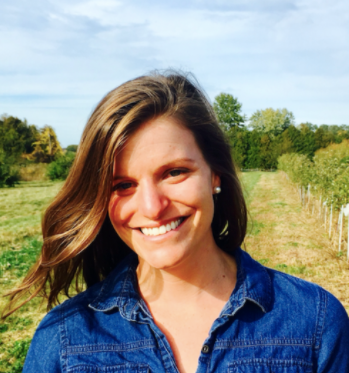Advertisement
The life and losses of politician Michael Tubbs
Resume
In January, 2017, 26-year-old Michael Tubbs made history as the first Black mayor of Stockton, California, and one of the youngest mayors anywhere.
Tubbs knew his city well.
"Stockton is inspiring. But it’s also a harrowing tale in terms of what happens when we don’t invest in community," he says.
Tubbs faced the issues head on. He championed a progressive agenda, piloted a universal basic income program and received the backing of some of America's most famous politicians and stars, including Oprah.
So, in the very next election, why did Michael Tubbs lose the mayor's seat by more than 13 points?
"When you’re championing issues that go against 400 years of history, you might lose sometimes," he says.
Today, On Point: Michael Tubbs tells his story.
Guests
Michael Tubbs, former Mayor of Stockton, CA from 2017 to 2021. Author of “The Deeper the Roots: A Memoir of Hope and Home.” (@MichaelDTubbs)
Book Excerpt: Intro to “The Deeper the Roots: A Memoir of Hope and Home”
“Don’t tell nobody our business.” This was the mantra my she-daddy (mom) drilled into me before I even started school. I never interrogated it—we didn’t have anything to hide, and it’s not like I had anything noteworthy to share. Our circumstances were my normal. Things that were tough about our lives were reasons, she said, to prove Them wrong.
Them were ubiquitous and circumstantial. At times them were my teachers, at times them was society at large, at times—as far as young me was concerned—them was she-daddy herself. Our business, and by extension my story, never occurred to me as a reason that I wouldn’t do well. She-daddy just stressed that I would have to work twice as hard to succeed. Our business became my secret source of strength. Whatever milestone I passed, only my family knew the full distance I’d traveled to the finish line.
By the start of my senior year of high school, as a seventeen-year-old, I had found another reason to keep things to myself. I didn’t want to be just my story, our business, my origins. (Still don’t.) I didn’t want to be a statistic. Truthfully, I was ashamed of some parts, of how it all started for us. The poverty, the single parenthood, the struggle all sounded like a stereotypical sob story, and I resolved not to tell it.
Only thing was—I wanted an A in drama class. That summer I had immersed myself in books about the college admissions process, dreaming about hazy green lawns far from Stockton. Every book and article stressed the same thing: that grades and test scores weren’t enough, you had to give them a sense of who you were. My drama teacher, Mr. Motroni, offered extra credit that fall: enter an essay contest hosted by Alice Walker, responding to the prompt “How I changed my own life.” Here was an opportunity to knock out two birds: get my grade up, and practice for my college admissions essay. I could tell just a little bit of my story, maybe.
As I started writing, it felt like a huge inhale and exhale. Finally, I had an outlet to record the experience of my mom’s omnipresence and my dad’s absence. I smiled as my pen described my mom’s strength and determination, how she had given birth when she was my own age and had never left me since. I didn’t want to embarrass her, but I decided to include this stuff anyway. It was because she only had a high school education, after all, that I was writing this essay—that I was trying to gain acceptance to the best schools in the country.
I struggled with whether to actually mention my father. Nobody outside of my immediate family knew why he wasn’t around. My explanation changed each time I was asked—I didn’t know who he was, or he moved out of state, or he was dead. All of these were lies. In the end, I opened my essay with the truth: “The first time I saw my father, he was chained.” My father was in prison and wasn’t getting out anytime soon.
The ink flowed. I wrote about growing up in Stockton, I wrote about the lessons I had learned from my parents. I wrote about how my dreams were incubated in their disappointments and nightmares. I wrote about the context of racism and classism I was just beginning to understand, without which neither my mother’s perseverance nor my father’s shame made sense to me, and against which tides I had accomplished everything I already had. I wrote about fighting against the soft bigotry of low expectations. It would take me years more to process it all (and I’m still processing!), but I had the first inklings then that my “business” was part of something much bigger. That my “business” was a source of strength and was worthy to be told.
More than a decade later, I understand that stories are important because They overcame by the blood of the Lamb and the word of their testimony. Our testimonies are sources of pride and reservoirs of strength. Storytelling—truth-telling—is how we make sense of the world as it is and gain the vision and courage to create the world as it should be.
In that vein, I see my calling not as a political one, but as a narrative one. I am more a griot than politician, and to quote my favorite rapper, J. Cole: “My story ain’t the only story I’m trying to tell.” The aim of this book and of my work is to share what deserves to be shouted from the rooftops. Trauma and triumph. Pain and purpose. A story of Stockton and cities like it. Of policy failures. Of growing up black and poor in post-Reagan America. Of being the path- breaking mayor of a major American city during the Trump presidency. Of mass incarceration. A story of my mom, my aunt, and grandmother, and countless single mothers like them. A story of my father. A story of progress and of pitfalls. A story of making history. My story.
I won that essay contest, by and by. In one of the many lucky, surreal turns my life has taken, I got to meet Ms. Alice Walker, who gave me some words I’ll never forget. She helped me realize that my life is not a sob story, but a survivor’s tale.
Thank you, Alice Walker. And thank You, for reading on.
EXCERPTED FROM THE DEEPER THE ROOTS. COPYRIGHT © 2021 BY MICHAEL TUBBS. EXCERPTED BY PERMISSION OF FLATIRON BOOKS, A DIVISION OF MACMILLAN PUBLISHERS. NO PART OF THIS EXCERPT MAY BE REPRODUCED OR REPRINTED WITHOUT PERMISSION IN WRITING FROM THE PUBLISHER.
This program aired on November 17, 2021.

